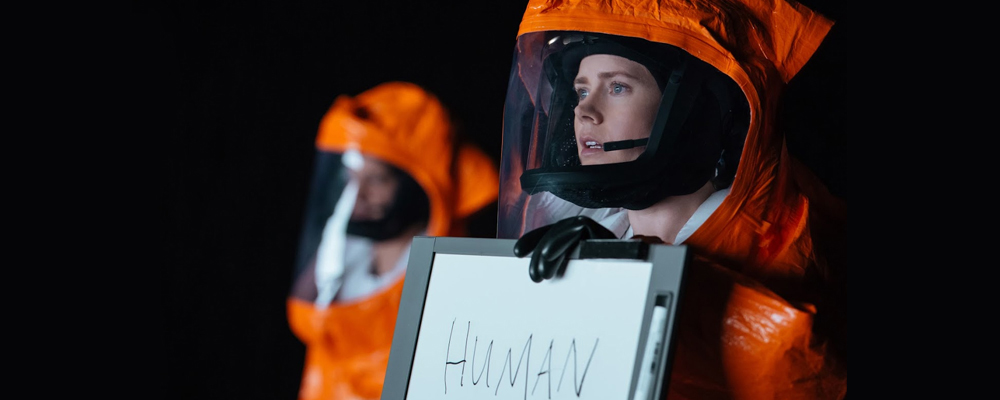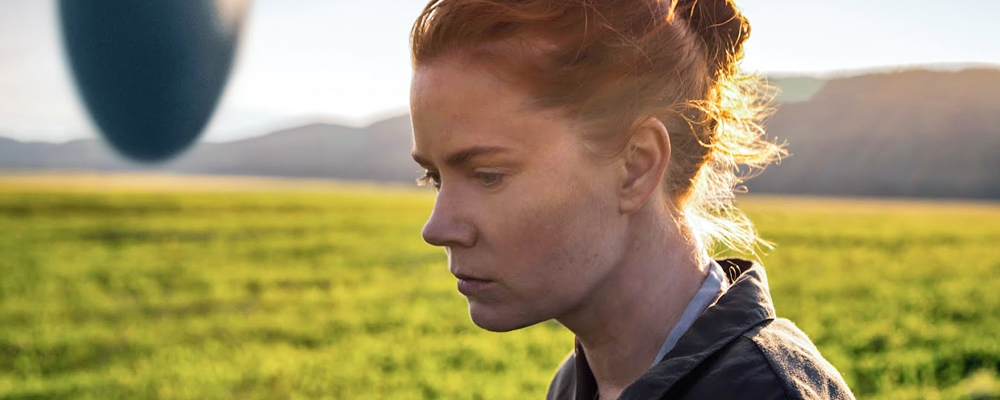Amy Adams Shines as a Grieving Mother in Sci-Fi Drama ‘Arrival’
Allyson Gronowitz
If Christopher Nolan’s “Interstellar” were as enthralling, temporally mind-blowing, and philosophically poignant as it tried to be, it would have looked a lot like “Arrival,” which spotlights a brilliant, bereaved linguist (Amy Adams) as she’s summoned to communicate with the extraterrestrials hovering above Earth.
Directed by Denis Villeneuve, whose credits include critical darling “Incendies,” this sci-fi turn probes the human condition. Villeneuve is skilled at capturing the authenticity of raw emotion on screen. Adams does her part with an achingly intimate performance as grieving mother Louise Banks, a professor at a local university whose life – like everyone else’s on Earth – is upended when the mysterious aliens arrive.
Twelve silent, ebony ships, each shaped like half an egg, appear in various locations across the globe, and “Arrival” takes us through the realistic reactions to the unreal events. Louise accepts it all with an ingrained numbness until U.S. Army Colonel Weber (Forest Whitaker) arrives to whisk her away to a grassy field in Montana, where one of the spaceships has appeared.
Aboard the military helicopter, she meets Ian Donnelly (Jeremy Renner), a mathematician enlisted for the study. The two immediately establish a rapport based on professional respect, trading friendly barbs on the central importance of language (Louise’s field) versus the central importance of science (Ian’s realm). As the two work together, so do many nations, as shown via different screens in a tent on the U.S. Army site share the results of their scientists’ studies. Everyone’s central question is the same: What is the aliens’ purpose on Earth?
Every 18 hours, a door on the bottom of the ship opens up. Decked in Hazmat equipment, the U.S. team – including Louise and Ian – climbs in to continue with their study. Armed with a whiteboard, Louise soon makes progress with the intricate language of the so-called “heptapods,” but tensions simmer among the nations of the world as other leaders become less interested in discovery and more interested in self-preservation. The film was based on a short story by Ted Chiang, “The Story of Your Life,” and adapted by screenwriter Eric Heisserer. Also featured are Michael Stuhlbarg and Tzi Ma.
Cinematographer Bradford Young offers sunset-tinged landscapes that reflect the mystery surrounding the heptapods’ arrival. Young also used innovative lighting techniques for the inside of the spaceship and for the flashback scenes with Louise and her daughter. Woven intricately throughout the film, these scenes inform Louise’s emotional journey while raising questions about memory and time. As the best sci-fi does, “Arrival” evokes more questions than it answers.
“Arrival” opens nationwide on Nov. 11.



